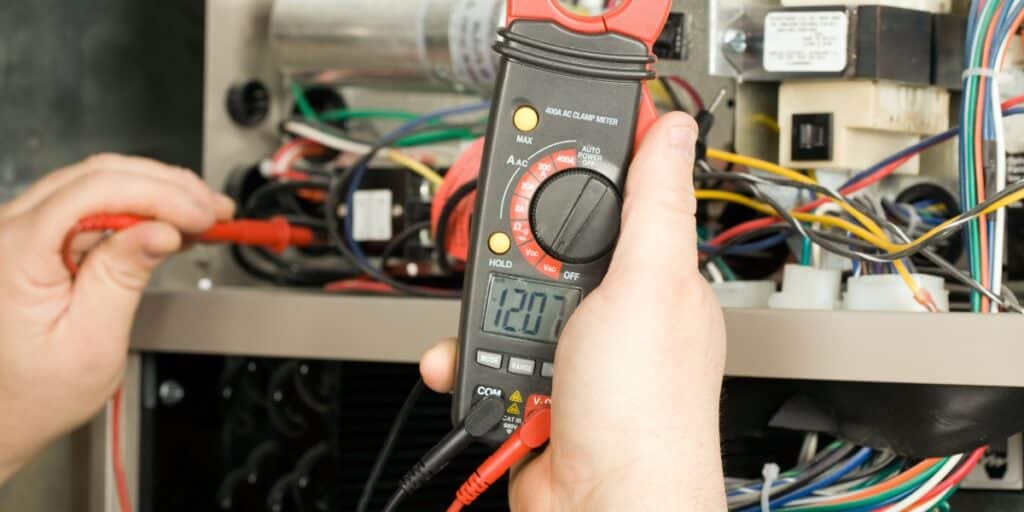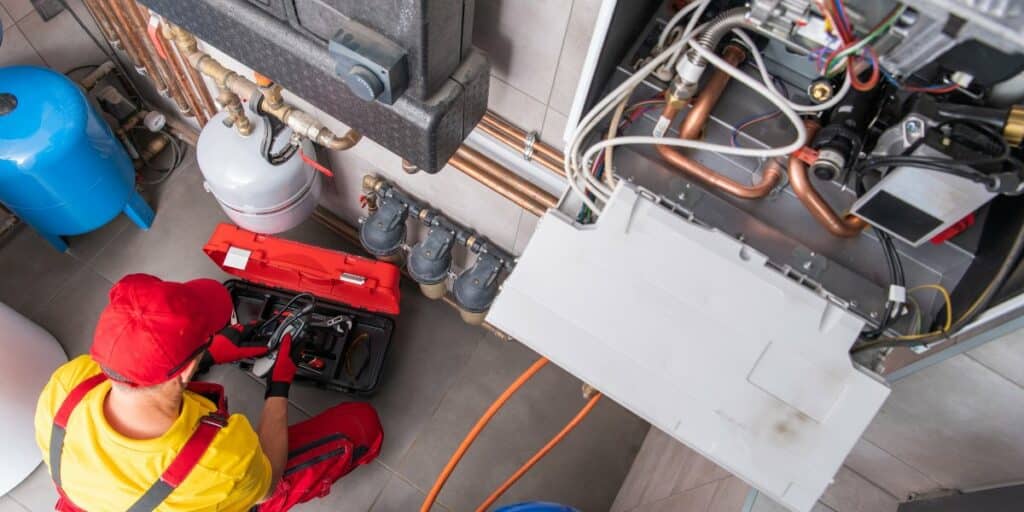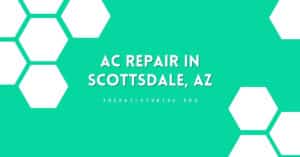Every homeowner knows the comfort a well-functioning furnace brings, especially during cold months. However, a regular furnace tune-up is essential to ensure it keeps running smoothly. In this article, I’ll guide you through the ins and outs of furnace tune-up, explaining its importance, what it involves, and why it should be a regular part of your home care routine.
A furnace tune-up is an essential process performed by an HVAC specialist to guarantee the optimal functioning of your heating system. During this comprehensive service, the specialist inspects every part of the system, ensuring each component is in good working order. This isn’t just a surface-level examination; it involves using specialized tools to clean, adjust, and test each part of the furnace, ensuring its overall efficiency.
The purpose of regular maintenance goes beyond just keeping the furnace running. It’s about preempting breakdowns, enhancing the system’s efficiency, and extending its lifespan. Regularly maintaining your HVAC system prevents the accumulation of dirt and the onset of corrosion. These two common culprits lead to deterioration over time.
Another critical aspect of a furnace tune-up is the early detection and replacement of valuable parts. Before they become widespread, catching issues early on saves not just on the cost of repairs but also on the potential inconvenience of unexpected system failures.
What is Really Included in Furnace Tune-Up

A comprehensive furnace tune-up encompasses several vital steps, each playing a crucial role in maintaining the health and efficiency of your heating system. Let’s delve deeper into these components:
Furnace Inspection
During the inspection, a professional technician thoroughly examines your furnace. This step is not just about a cursory glance; it involves a detailed look at every component. The technician checks for signs of wear and tear, which could lead to more significant issues. They assess the condition of the heat exchanger, blower motor, burner, ignition system, and ventilation system, among others.
Purpose: The goal is to identify any potential problems before they escalate. This proactive approach can save you from costly repairs and extend the life of your furnace.
What’s included:
- Heat Exchanger Inspection: The technician inspects the heat exchanger, ensuring it’s effectively transferring heat from combustion gases to the air circulating through your home while safely expelling exhaust gases outside. They check for any hairline cracks that could potentially compromise safety.
- Duct Supply and Return Check: The technician measures the temperature at each supply and return vent, ensuring proper airflow and temperature distribution throughout your home.
- Combustible Material Check: The area around the furnace is inspected for any storage or combustible materials that could impede airflow or pose a fire risk.
Furnace Cleaning
Furnaces, like any other equipment, are prone to accumulating dirt and debris over time. During a tune-up, the technician cleans critical components such as the blower motor, fan blades, and filters. This step is crucial because debris buildup can impede airflow and reduce the efficiency of your furnace. The cleaning process may also include removing soot from the burner, cleaning the flame sensor, and ensuring the blower wheel is debris-free.
Purpose: Regular cleaning ensures that your furnace operates at peak efficiency. It also helps maintain good air quality in your home, as a clean system circulates cleaner air.
What’s included:
- Furnace Exterior: The technician cleans any dust or debris from the furnace’s exterior.
- Burner Compartment: This crucial area is thoroughly cleaned, where gas mixes with air to heat your home.
- Filter Maintenance: Depending on your filter type, it will be washed or replaced, which is vital for maintaining air quality and system efficiency.
- Blower Assembly: The assembly, including the motor and wheel, is removed and cleaned to prevent imbalances, noises, or potential damage.
Test and Measure
The “Test and Measure” phase in a furnace tune-up encompasses a set of specific diagnostic and evaluative procedures to ensure the optimal performance and safety of the HVAC system.
Purpose: The primary purpose of these tests is to ensure the furnace’s safety, efficiency, and reliability. The test ensures the furnace operates without posing risks such as electrical hazards, gas leaks, or carbon monoxide infiltration. This also helps identify and address minor issues before they evolve into major repairs, thus extending the furnace’s lifespan.
What’s included:
- Electrical Wiring Check: The technician ensures that all electrical connections are secure and in good condition.
- Thermostat Evaluation: An often-overlooked but essential component of a furnace tune-up is checking and calibrating the thermostat. The technician will ensure that the thermostat reads the temperature and functions correctly. This may involve recalibrating the device, checking its wiring, and ensuring it communicates effectively with the furnace.
- Carbon Monoxide Testing: Throughout the tune-up process, the technician uses sensitive detectors to ensure no carbon monoxide enters your home.
- Ignition System Operation: The pilot light and ignition system are cleaned and tested for reliable operation.
- Other Tests: These include checking the blower motor’s amperage and voltage, measuring and adjusting gas pressure, testing for combustion gas leaks, evaluating the operation of the secondary motor control, checking safety and control circuits, and inspecting the exhaust system venting.
Each of these components is integral to your furnace’s overall health and efficiency. A thorough tune-up addresses these key areas, ensuring your heating system operates smoothly, efficiently, and safely, providing reliable warmth throughout the colder months.
How Much Does a Furnace Tune-Up Cost?
The cost of a furnace tune-up typically ranges from $80 to $150, but this can vary based on many factors.
The price of a tune-up can vary depending on several factors, including the complexity of the service, the location, and the specific needs of your heating system. Let’s explore what goes into determining the cost of a furnace tune-up.
- Regional Differences: Depending on where you live, labor costs can significantly affect the price of a furnace tune-up. Typically, urban areas might have higher rates than rural areas due to the higher cost of living and operating a business.
- Type of Furnace: The make and model of your furnace can influence the cost. High-efficiency or newer models may require more specialized knowledge or parts for maintenance, potentially increasing the price.
- Scope of Service: A basic tune-up might cost less, but if your furnace requires additional services such as part replacements or extensive cleaning, the cost can go up.
- Service Contracts: Some HVAC companies offer service contracts or maintenance plans that include annual tune-ups as part of the package. These contracts can sometimes offer a more economical option than a one-time service.
- Company Reputation and Expertise: The expertise and reputation of the HVAC service provider can also impact the cost. Established companies with highly skilled technicians might charge more, but they often provide a higher quality of service.
While the cost of a furnace tune-up can vary, it’s an essential investment in your home’s comfort and safety. It’s advisable to get quotes from a few different service providers to find a balance between cost and quality of service.
What Are The Benefits Of Furnace Maintenance?
Furnace maintenance is often overlooked by homeowners until they face a heating crisis. However, the benefits of regular maintenance are substantial, impacting everything from system efficiency to cost savings.
Let’s explore why keeping up with your furnace maintenance is wise for any homeowner.
A Furnace Tune-Up Prevents Repairs
Routine furnace maintenance is essential for avoiding unexpected breakdowns, especially during the cold winter. A typical furnace tune-up involves a detailed inspection and cleaning, ensuring each component functions optimally.
During this process, an HVAC technician can identify and replace worn-out parts, like a rusty heat exchanger or a failing blower motor, before they cause a system failure.
Regular cleaning also reduces the chances of issues like clogged air filters or blocked drain lines, preempting larger, more costly problems.
Maintenance Extends Your HVAC System’s Lifespan
The longevity of your heating system is directly tied to how well it’s maintained. Dirt and grime strain the system, forcing it to work harder to meet your heating needs, which can accelerate wear and tear.
Consistent maintenance ensures that each part of your furnace functions as intended, prolonging the system’s overall lifespan and preventing the domino effect of component failure.
A Furnace Tune-Up Lowers Utility Bills
The efficiency of your HVAC system is crucial for energy conservation and cost savings. A dirty or in disrepair furnace has to expend more energy to heat your home, leading to higher utility bills.
Regular tune-ups ensure that your furnace operates at peak efficiency, keeping your energy costs in check.
What Should I Look for When Hiring an HVAC Technician for Furnace Tune-Up?
When hiring an HVAC technician, there are several key factors to consider to ensure that you receive quality service for your furnace maintenance or repair needs.

Here’s what to look for:
- Experience and Expertise: Look for a technician with a proven track record in handling HVAC systems, particularly your type of furnace. Experienced technicians are more likely to accurately diagnose and effectively fix any issues.
- Licensing and Certification: While not all states require HVAC technicians to be licensed, it’s a good practice to choose one who is. A licensed technician has met certain industry standards and is more likely to provide reliable service. Use your state’s contractor license tool to verify their credentials if available.
- Insurance: Ensure that the technician or the HVAC company they represent is insured. This protects you from liability in case of any accidents or damage during the service.
- Reputation and Reviews: Recommendations from family and friends are invaluable. They can provide honest feedback about their experiences with specific technicians or companies. Additionally, check the Better Business Bureau and online review platforms for ratings and reviews of local HVAC companies. This can give you insight into their reliability and customer service quality.
- Service Range and Specialization: Confirm that the technician has experience with your specific HVAC system model and the type of service you need, whether it’s routine maintenance, repair, or installation.
- Price and Value: While cost is an important factor, it shouldn’t be the only one. Compare quotes from different technicians but also consider the value they offer in terms of service quality, warranty, and follow-up support.
- Professionalism and Customer Service: Pay attention to the technician’s professionalism in your interactions. A reliable technician should be punctual, respectful, and willing to answer your questions and explain their services clearly.
- Warranty and Follow-up Service: Check if the technician or their company offers a warranty on their work and inquire about their policy on follow-up services or issues post-repair.
By considering these factors, you can make an informed decision and choose an HVAC technician who will provide quality service for your furnace and overall HVAC system.
Summary
A furnace tune-up is an essential maintenance task that ensures the efficient and safe operation of your heating system. This process typically includes a thorough inspection of the furnace, where a technician checks for wear and tear and ensures all components are in good condition. They will clean vital parts such as the blower, fan blades, and filters and adjust and calibrate the thermostat for accurate temperature control.
The benefits of regular furnace tune-ups are significant. They include preventing unexpected repairs, extending the system’s lifespan by keeping components clean and in optimal condition, and reducing energy bills by maintaining the efficiency of the furnace. Regular tune-ups can also identify potential issues before they become major problems, saving homeowners from costly repairs and replacements.
During a tune-up, technicians also perform various tests and measurements, such as checking electrical wiring, evaluating thermostat settings, testing for carbon monoxide, and inspecting the ignition system. These steps are crucial for ensuring the system’s safety and functionality.
Overall, an annual furnace tune-up is a proactive measure that contributes to the longevity and reliability of your heating system, ensuring it provides consistent warmth and operates efficiently throughout its lifespan.






